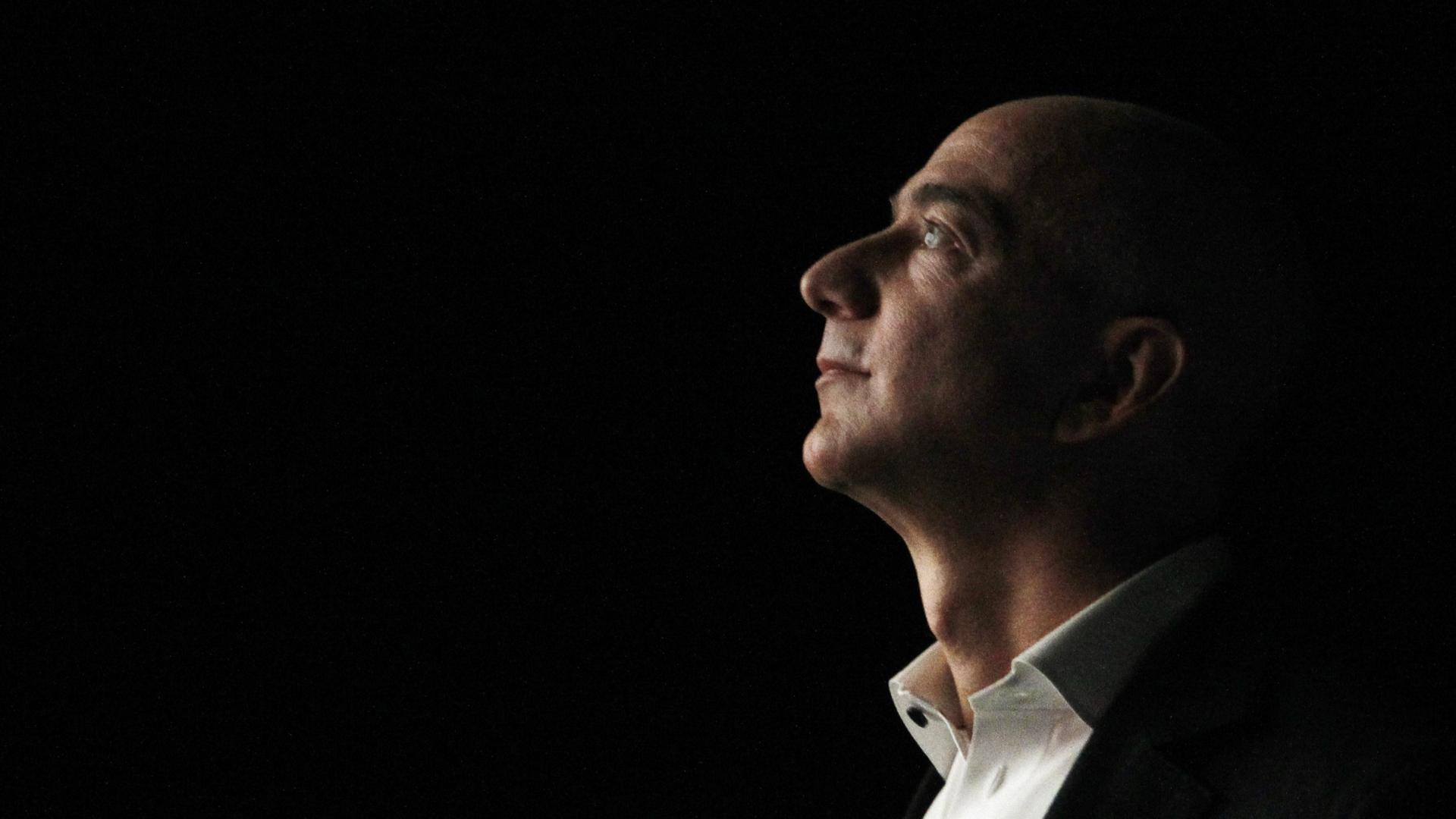July 2021 is a big month for Amazon’s Founder and former CEO, Jeff Bezos. Not only did he step down as CEO of the company he built into a $1.63 trillion empire, he will also fly into space on the first crewed flight of his New Shepard rocket ship. And yet, the space trip is just the most recent of Bezos’ boundary-breaking endeavors. Bezos and his company have revolutionized American business, extending their reach into nearly every industry — from retail, to media, to healthcare and cloud computing.
Brad Stone—the author, most recently, of Amazon Unbound: Jeff Bezos and the Invention of a Global Empire — explains that the e-commerce giant has often seemed “unbound from the laws of corporate gravity.” While most companies eventually plateau, Stone says that Amazon has defied these business norms by continuing to grow rapidly. Stone, a senior executive editor at Bloomberg News, with years of experience reporting on the company, examines Amazon’s various successes and Bezos’ sweeping influence. Specifically, he traces Bezos’ transformation from a frugal tech nerd to a buff billionaire whose high-profile divorce made headlines. But what exactly accounts for Amazon’s extraordinary rise? If there is one thing that drives Bezos, Stone points out, it’s his deep fear of stasis.
Three Takeaways:
- Though it is the least customer-facing sector of the company, Amazon’s Web Services is its most profitable, bringing in over $13.5 billion a year. The subsidiary allows them to even profit off their competitors — Netflix, Disney and Apple all use Amazon Web Services on the back end of their operations. As Stone notes, the cloud computing service allows the company to profit “at every level of the ecosystem.”
- In 2013, Jeff Bezos bought The Washington Post for $250 million. After just three years under Bezos’ leadership, the once-ailing newspaper turned profitable. “He has completely reversed this atmosphere of melancholic decline,” Stone said. Stone also speculates that Bezos’ decision to purchase the Post was likely fueled by a desire to expand his presence in Washington. But his ownership of the newspaper famously put him at odds with President Trump, who disliked the paper’s coverage of his administration, later dubbing him “Jeff Bozo.” The hostility culminated with Trump allegedly pulling the $10 billion JEDI computing contract from Amazon in retaliation.
- Amazon has long been accused of violating antitrust laws, and Stone points out that the company “took a considerable image hit” over the past year. During the pandemic especially, “we started to view it more as a monopolist that deserved regulatory and legislative attention,” he said. And indeed, in May, the Attorney General for the District of Columbia sued Amazon for unfairly crushing competition. While Amazon may be forced to change some of its practices, Stone speculates that policymakers will struggle to meaningfully alter its tendencies. He explains that “there is a market definition challenge,” whereby regulators have so far failed to specify exactly which online market Amazon dominates.
